Stagecoach (1939)
“There are some things a man just can’t run away from.”
|
Synopsis: |
|
Genres, Themes, Actors, and Directors:
Response to Peary’s Review: I believe this was the film that sparked my admiration for character-actress Claire Trevor as a teenage film fanatic; I recall learning that she considered herself merely a “working stiff” in Hollywood, trying to survive as a single mother, and that I felt intense admiration for her no-nonsense approach to a notoriously ego-filled field. She’s top-billed among the ensemble cast here, and deserves this status, given that she’s the emotional glue holding the stagecoach passengers together. When Platt suddenly gives birth along the journey (during the film’s most heartfelt extended sequence), Trevor selflessly cares for the newborn while Platt recovers; and when she’s given the unprecedented opportunity (by Wayne) to turn her life around, she cares more about his safety than her own future. Speaking of Wayne, he’s never been more charismatic or appealing than he is here (as Peary points out, “What an entrance Ford gave him!”); and the rest of the “marvelously cast” supporting players — Mitchell, Meek, Carradine, unknown Platt, and others — are excellent as well. I especially like how nearly every character in the story is given an arc of some kind, and allowed to emerge by the film’s end as someone much more nuanced than we could ever have expected. All this in a “mere” western! — one which, on the surface, seems like simply a conglomeration of conventional characters and situations, yet comes together so seamlessly it’s been studied as a masterwork by countless famed directors (most notably Orson Welles). Indeed, Stagecoach is an excellent example of a solid genre flick which simultaneously functions as a vehicle for deeper musings on human nature. To that end, Peary notes that “the coach serves as an arena for a clash between those who represent society” (the banker, the doctor, the married woman, and the salesman) and “those whom society considers outsiders” (the escaped prisoner, the prostitute, the gambler) — with nearly all the former passengers (the corrupt banker being a key exception) “won over” by the latter, and the driver and sheriff remaining “outside on the ride through the wilderness” (they represent “neutral figures who are part of civilization but have open minds towards those who don’t fit in”). While I’m not generally a fan of Ford’s characteristic incorporation of humor throughout his films (usually in the form of buffoonish characters), in this case he uses humor as a starting point for some surprisingly heartwarming revelations: Mitchell’s tippling doctor, for instance, eventually sobers up enough to deliver Platt’s baby (and to be of genuine help during the pivotal, excitingly directed Indian attack); Meek may initially stand “meekly” by while Mitchell downs his supply, but he ultimately proves he’s more than merely a spineless sap; Devine’s whimpering ninny of a stagecoach driver keeps going despite his own worst fears (which come true); etc. Regardless of whether one chooses to view this film as part of Ford’s broader oeuvre — or merely as an engaging flick in its own right — it remains a must-see classic, one worthy of multiple enjoyable visits. Note: Interestingly, at the time he directed Stagecoach, Ford — who’s largely remembered these days for helming countless classic westerns — hadn’t made one in 13 years, since the silent western Three Bad Men (1926). Redeeming Qualities and Moments:
Must See? (Listed in 1001 Movies You Must See Before You Die) Categories
Links: |
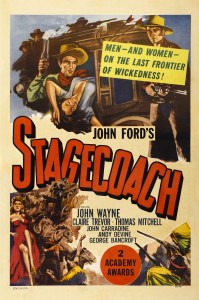
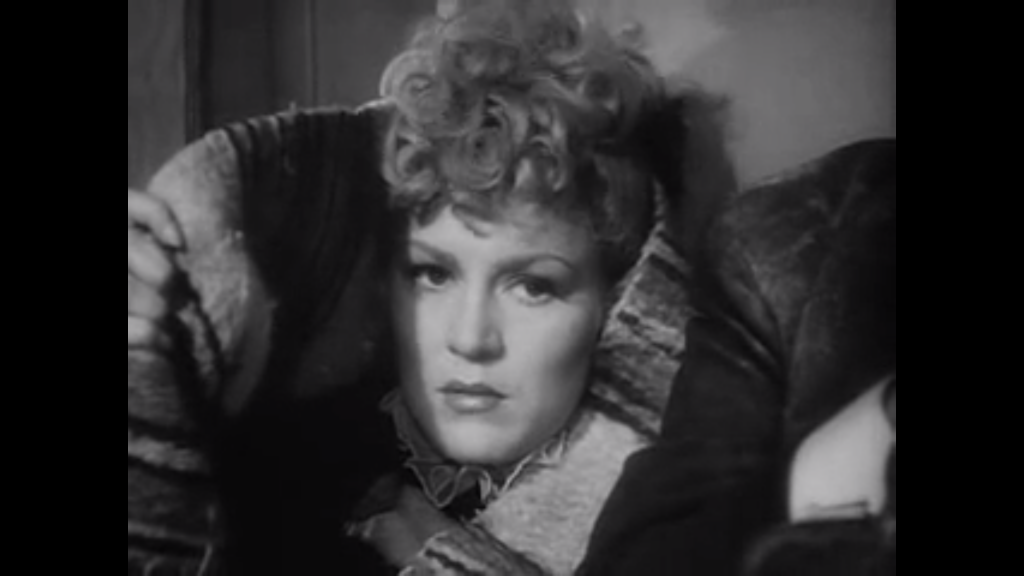
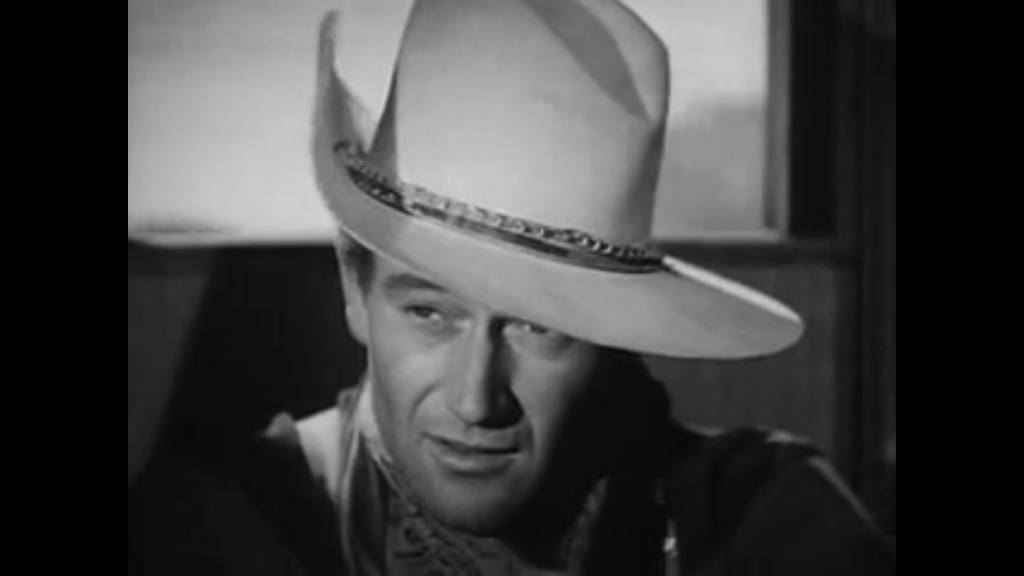
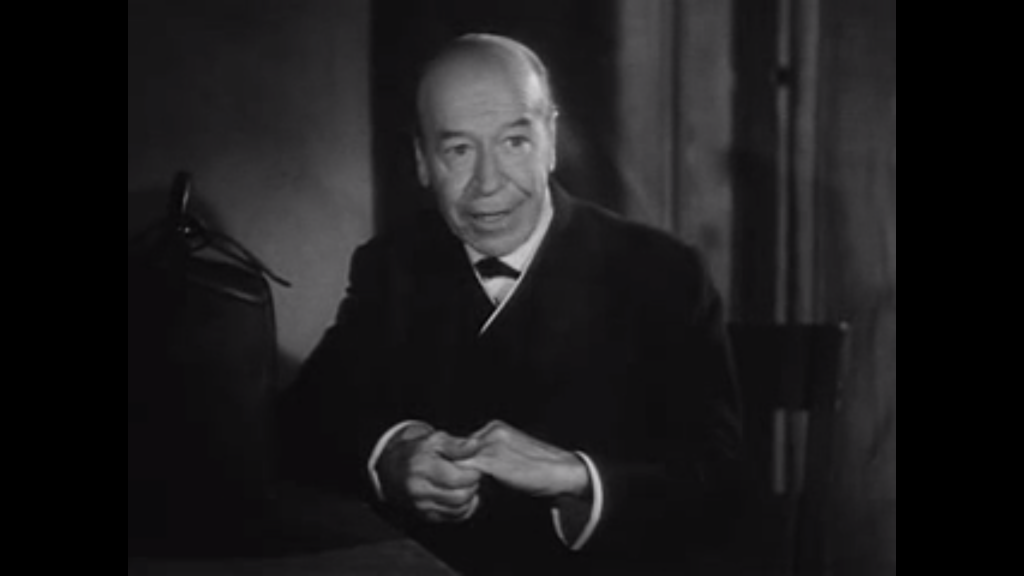
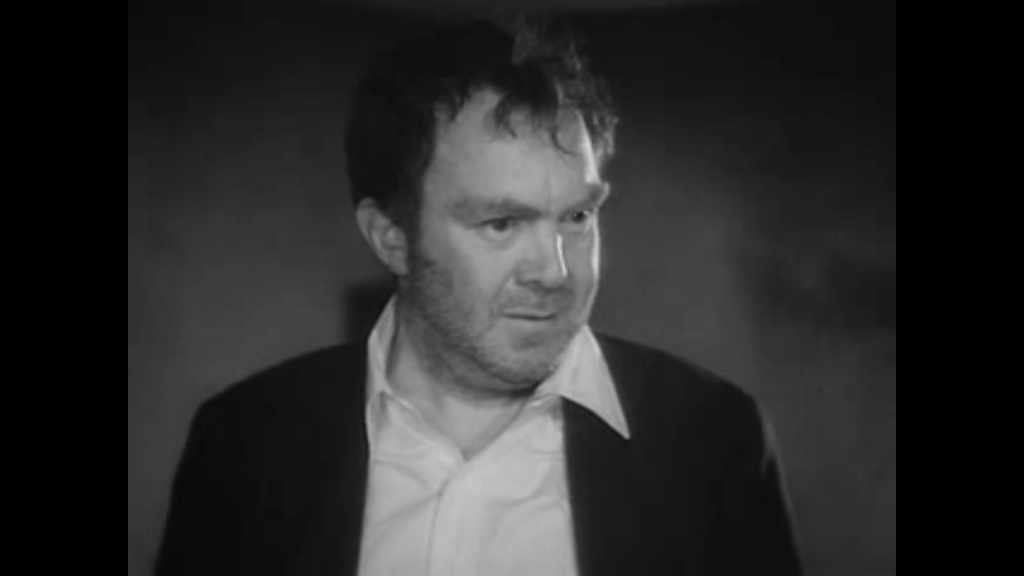
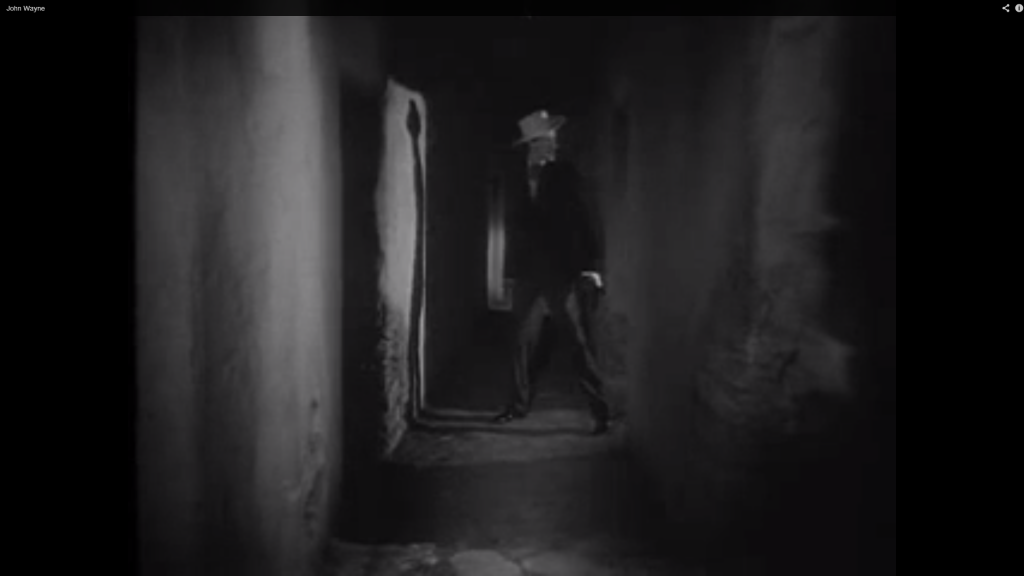
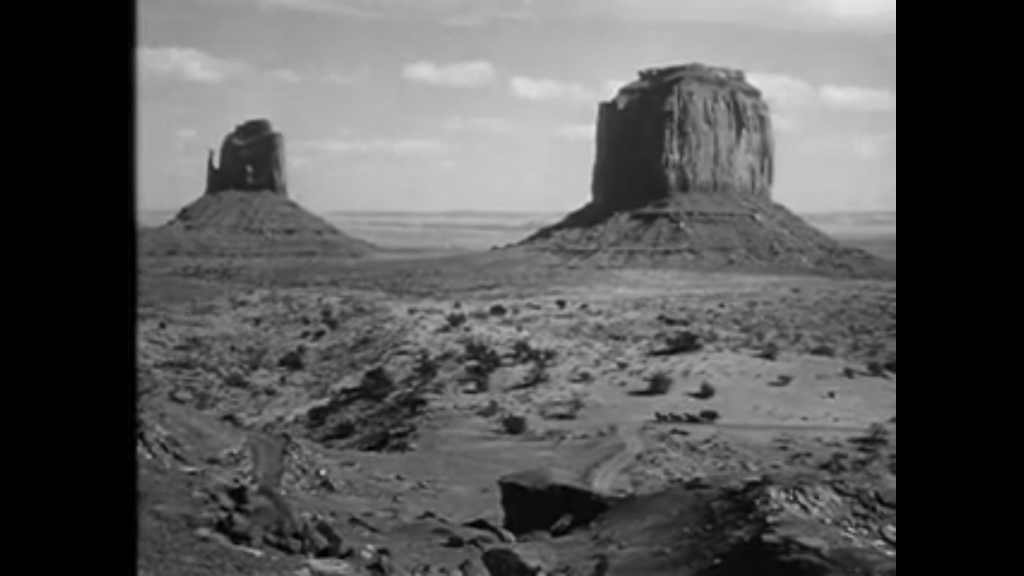
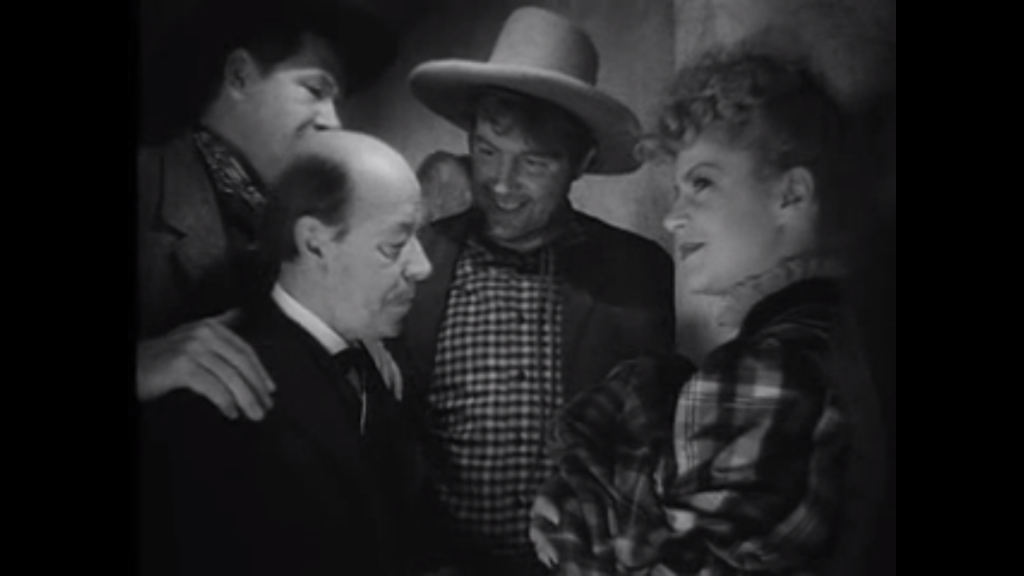
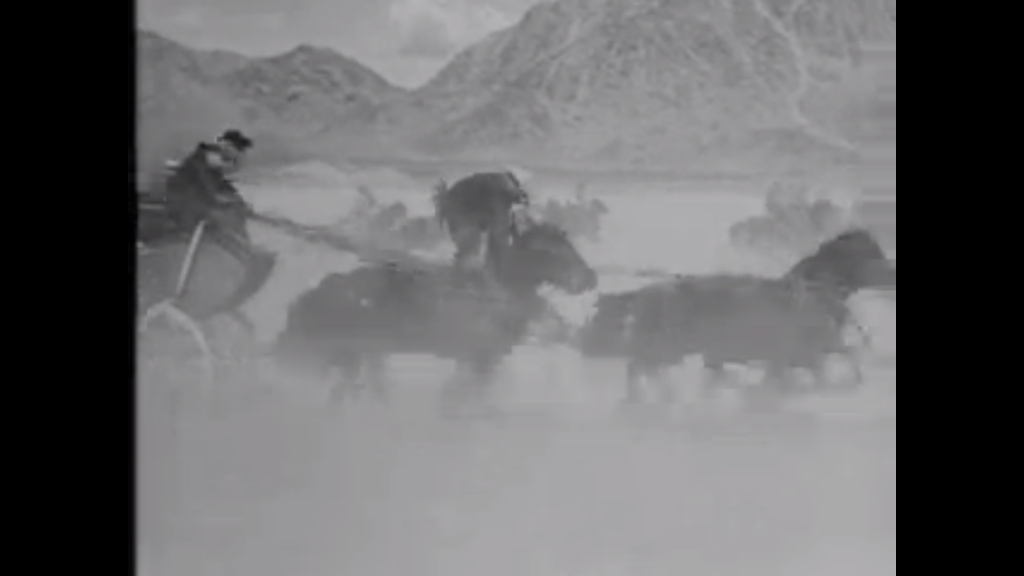
5 thoughts on “Stagecoach (1939)”
“Stagecoach” is perfect. A continually entertaining and enlightening film. So much to enjoy from the performances to the deceptively simple cinematic storytelling.
Thanks for checking in, Caftan Woman! I love your site and especially enjoyed your sweet anniversary tribute. 🙂
Thank you for the kind words.
I’m sorry it took me so long to discover your site. You can bet I’ll be a frequent visitor.
A no-brainer must – as one of Ford’s best films as well as one of the best westerns ever!
It had been so incredibly long since I last saw this. Watching it again (in a lovely Blu-ray print), I was finding it hard to believe I had actually let all that time go by without a revisit. What was I thinking??! 😉
Just about every great film begins with a great script, and Dudley Nichols has provided a jim-dandy, one that couldn’t be simpler or probably more effective. It’s an economic marvel: a slight tale that almost seems to have written itself yet is packed with rich character detail. Well, for the most part – some of the less-important characters (like Platt, for example) don’t need to be more than a brush-stroke.
The review given here for this film is one of the best reviews of a film in this site; very thorough – so I have little to add, really. I was so taken with this film all over again that I savored the elements that the review here brings out. Ford’s control and vision in this film are nothing short of masterful. What’s truly startling is how fresh the film remains after all these years. Ford has said that he preferred shooting scenes in one take – and that may account for the feeling of genuine spontaneity that permeates ‘Stagecoach’. Filming in this manner requires that actors pull forth immense concentration; it’s do or ‘die’. Of course, actors do have the ability to duplicate emotions in take after take, if necessary – but there does appear to be that indefinable ‘something extra’ evidenced in Ford’s deceptively no-fuss approach. (I wonder just how many directors have preferred this style of filmmaking; I know Fassbinder also worked that way.)
Although there are countless terrific scenes, my favorite is probably a non-verbal one about midway: Platt has just given birth and, having assisted in the delivery, Trevor takes a walk outside, As she goes, Wayne follows her down a long corridor, letting her walk ahead, falling more in love with her from afar. The corridor shot is just lovely, and quite romantic.
But my second favorite would probably be when the coach group first sits down to a meal together. This scene drips with tension since everyone there (except Wayne) seems to be *very* aware that Trevor is…well, ‘a fallen woman’…and one shouldn’t really sit next to…one of *those*, should one? 😉
Though I do especially enjoy the performances by Mitchell, Devine and Meek (the latter subtly scene-stealing whenever possible, and delightfully so), I find Wayne and Trevor extremely impressive. Wayne, of course, probably never made it onto anyone’s ‘best actor’ list but – particularly in a handful of Ford’s films – he was nevertheless capable of more than one might think possible. And what can one say about Trevor? Her portrayal here is flawless: painfully aware of her station in life, she accepts it with marvelous dignity; like Wayne, we just can’t help but love her.
A true classic, in each wonderful sense of the term!
Thanks, D! 😉
I love the corridor shot.
What a fabulous overall flick this is.